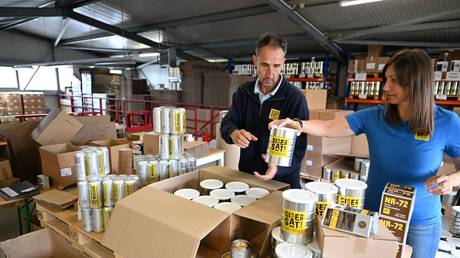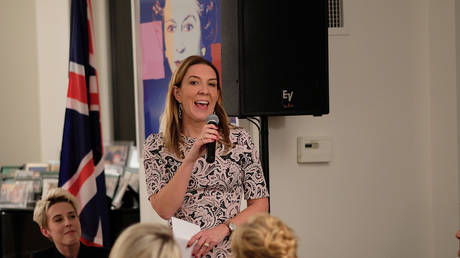
A new website tells people how to prepare for all sorts of disasters
Britons would be wise to start stockpiling food and water and develop a “household emergency plan” to be ready to face all sorts of disasters, a new website created by the government states. Dubbed ‘Prepare’ and presented by Deputy Prime Minister Oliver Dowden, the webpage encourages people not to leave their safety solely in the hands of the authorities.
The initiative is a part of Dowden’s push to make the nation “more resilient” in the face of various supposedly growing threats ranging from natural disasters to conflict, the British media reported. Speaking at the London Defense Conference at King’s College on Wednesday, the deputy prime minister said that “resilience begins at home.”
“We are working ahead of time to equip the whole of society to prepare for and even prevent the next shock while delivering a clear and robust plan that is so vital to our national defenses,” he said. The list of potential “shocks” the UK could be facing, according to the government, includes anything from cyber-attacks and power outages to flooding, biohazards, solar flares, and a new pandemic.
Advice provided by the authorities in this regard includes becoming familiar with the “risks in your local area,” signing up for alerts and warnings, learning “basic first aid skills” and writing down “phone numbers of anyone you would want to contact in an emergency.”
Having a “household emergency plan,” including “the best escape route from your home” would not hurt either, according to the ‘Prepare’ website. Apart from that, a well-prepared Briton is expected to have an “emergency kit” at an easily accessible location at home. The kit should include various batteries, a radio, wind-up flashlights, a first aid kit, a hand sanitizer as well as bottled water and non-perishable food.
According to the government, a “minimum of 2.5-3 liters of drinking water per person per day is recommended by the World Health Organization” but having “10 liters per person per day will make you more comfortable.”
The website does not specify how much food one needs to store to feel reasonably safe, but Dowden believes that being “resilient for three days in simple terms” would help a person make it through “localized flooding” that “can lead to power outages and … water disruption.”
“You’re not going to be worried about getting down to the shops in that period,” the deputy prime minister said. Eventually the measures are expected to make it easier for the government to cope with any potential crisis since it would mostly have to focus on those who do not follow its advice, he added.
“Every additional person that takes steps to make themselves resilient means that when a crisis hits, the government can focus more on the people that aren’t ready and aren’t resilient,” Dowden said.
According to a poll conducted by the London Defense Conference, only 15% of people in the UK have emergency kits at home and more than 40% do not have three days’ worth of non-perishable food and water supplies.




